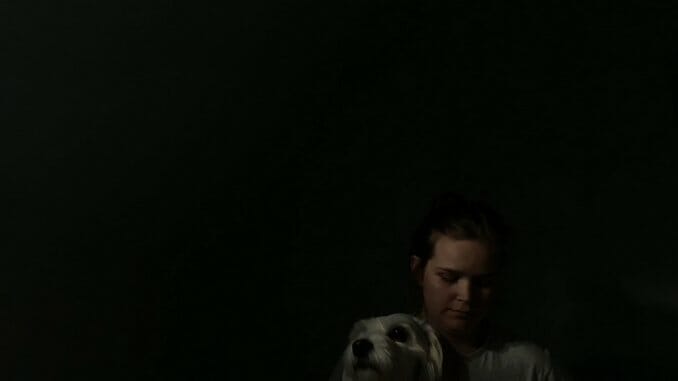Erēmīta (Anthologies)‘ Uneven COVID-19 Stories Assess the Moment

The COVID-19 pandemic’s impact on cinema has been undeniable. For one, it’s already been integrated into films’ plots. For another, it’s altered the balance of power between theaters and studios, letting us watch movies on things like HBO Max at the same time as they play on sparsely attended big screens. But it’s also been inspirational: Constraints can often beget creativity. Eremita (Anthologies) offers bursts of such inspired and inhibited strangeness in an uneven assessment of life, documenting this specific period around the world through a diverse spread that’s very imperfection is relatable to anyone that’s tried to get anything done under quarantine.
A charity project (benefitting Amnesty International) orchestrated by filmmaker Sam Abbas and contributed to by cinematographers Alexis Zabé, Antoine Héberlé, Ashley Connor, Sam Abbas, Soledad Rodríguez and Stefano Falivene, Eremita is what it claims to be: An arty anthology of hermitage, composed of short subjects—filmed during the first lockdown of the still-ongoing pandemic—that Abbas has interconnected with Thus Spoke Zarathustra snippets. The literary framing is shoehorned onto footage that encourages us to empathize around the world in a far more primal way than through a half-hearted Nietzsche connection, especially since the book’s themes of isolation, repetition and self-realization are already prominent in the images themselves.
The relatively simple shorts are familiar in form, if not in execution. They’re collected into an hour of quiet indie footage shot on cell phones, with furry pets almost always on the periphery. The compositions, color, light and detail can climb to a high level—especially with Connor’s segment, which dives deep into the frantic, grotesque familiarity of our bodies—but there’re no extraordinary feats of filmmaking on display. It’s comforting: Some of the best eyes in the industry are living the same lives, seeing the same things and trying to convey it all in detailed, impressionistic abstracts that resonate with our own warped years. It can also make you a little itchy. That static sameness can enhance the beauty of its everyday details and still drive you stir crazy.
Like any anthology, it all depends on which entry you’re watching—though each has something to offer and, for the most part, they all feel of a piece. Even Falivene’s entry, with its more on-the-nose footage of day-to-day life stuck at home—which means that Skype makes an appearance, both professionally and educationally—captures some truth…even if films like Host take that truth and make something of it. As pop culture assimilates Zoom calls and their ilk into the paradigm, simply noting the status quo shift isn’t enough to hold up a film segment. Héberlé’s contribution, perhaps the least interesting and the one with the most narrative bent, still has some striking images composed of shadows but feels the least like it belongs. Its construction is so obvious compared to the wild tangents of visual cabin fever preceding it that it’s overtaken by triteness.
-

-

-

-

-

-

-

-

-

-

-

-

-

-

-

-

-

-

-

-

-

-

-

-

-

-

-

-

-

-

-

-

-

-

-

-

-

-

-

-








































